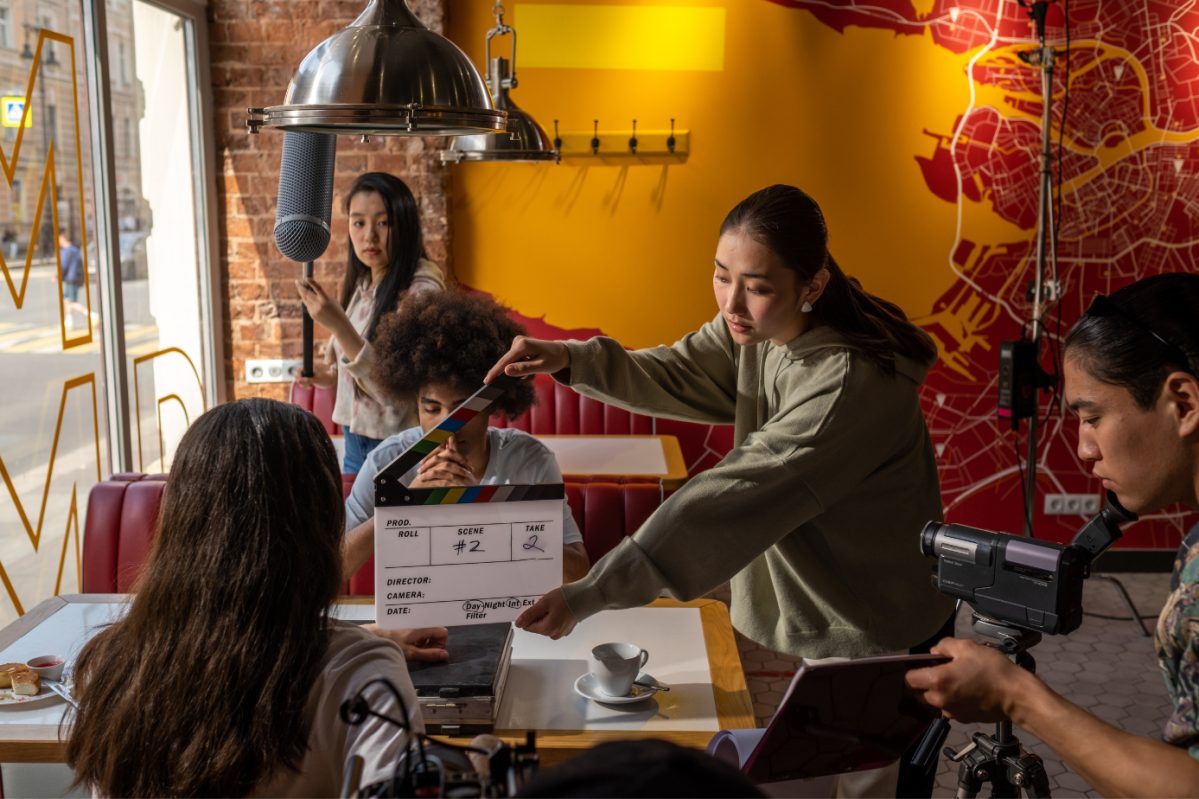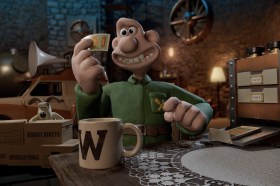Short films are strange beasts. They have a uniquely unenviable position of being near no-one’s first choice of entertainment, so in some ways must teach an audience how to experience them in their few minutes of runtime. They can feel genius and vital, or totally irrelevant.
Many people would consider most short films bad. But why? Well, filmmaking is one of the more complex artforms to realise – and short films often represent artists’ first tussles with that mechanism, engagement with those layers.
This year at the Heart of Gold International Short Film Festival we have watched 939 short films. In rough thirds that comes from films submitted this year, those submitted in the previous two Covid years, and works we’ve found talking to festivals and distributors across the world.
Our little programming team has watched all of these films, and our community screener groups (a huge selection of farmers, nurses, teachers and bamboo flooring experts from the region who gather weekly to review shorts), have watched the best few hundred of those.
We’ve seen the genius, the vital, the irrelevant, and the near-misses. Watching this world-spanning swathe of films, and hearing the detailed thoughts of over 30 non-film professionals on those films, has been tremendously beneficial to my understanding of short film as a programmer and a producer. Here’s what I’ve taken away from the process.
Top tips
Consider your film as a person – try to help them make friends
Funny people often make friends (if they are funny). People who don’t drone on forever make more friends than those who do, as do those who, when saying something, say something unique, intelligible and meaningful. Kindness and lack of self-importance helps. Silliness and play are hugely attractive. Consider also how your aesthetic attracts a particular type of friend. (There are, of course, always subscultures to be aware of.) What kind of person is your film, and are they doing a good job of being that person?
Workshop your script with your actors
We see a lot of lines sit uneasily in actors’ mouths. Be brave enough to ask your actors for their notes. Write them down, and consider them at a time when you have the emotional space. You’re attuned to a big picture version of your film, actors are often aligned with audiences – aware of psychological through-lines, and natural rhythms of speech. Value that.
Workshop your script with your aunt
Walk through your film with someone in a different demographic to you, especially if they’re the type of friend you want for your film. Find out what they find to be intelligible, cliche, funny, meaningful – and consider modulating your beats with that insight.
Read: How to make the most of a Fringe festival
Focus on sound, your image will be fine
Bad sound is an instant turn-off. Good sound immediately invites investment. Great sound can make lacking cinematography feel intentional. Visual literacy is so high, and your films images so public across production and post, that those will naturally be looked after. Focus your attention, budget and time on getting your film sounding incredible.
Probably don’t make a film about grief
There are a lot of shorts about grief, and they mostly feel the same. It’s a bad feeling, often made worse by the sense that the filmmaker mightn’t be planning to offer you new insight on the phenomenon. If this topic is meaningful to you, find a new way to portray it and a new thing to say about it.
Probably don’t moralise
Preaching, however eloquently executed, is rarely enjoyable. Can you go beyond calling a bad thing bad? Relish the wonder of film. Give a glimpse of the joy possible beyond morals. Consider that most people have an understanding of the sides of most popular moral questions. This means that your audience may well know what to expect from your film – which is never ideal. If you’re interested in exploring morality, can you pose a humdinger of a question? Or explore a nuance few have considered?
Look for new/old ways to structure your film’s ideas
Most short films we watch have a thesis x antithesis = synthesis structure. Consider that this supports the sense of value of ‘sensible centrism’. If this isn’t how you see the world, is there another way to structure your film? For inspiration, review older films, foreign films, literature, and books such as Alternative Screenwriting and Beyond the Hero’s Journey which explore alternate structures and their significance.

Documentary-makers, only include a third act if you have one
Many doc shorts have dynamic introductions, interesting turning points, but then fail to transition into a unique third act. Filmmakers often find a subject that contains an unexpected contradiction (‘it’s this, but like this!’), which is essentially a news format. A snappy two-act doc can play very well if it gets in and out quickly, and doesn’t pretend to have a third act. Good documentary third acts shift the perspective somehow; they expand what we thought was the remit of the film. If you’re lucky, prescient, and patient, this may arise naturally from the subject. Otherwise you might have to follow some leads into curious places and see if anything catches.
Consider not making documentaries about ‘charismatic but flawed men‘
This market is pretty saturated for the moment.
Best length for short films
At Heart of Gold, we reject more films for being too long than for any other reason. Here are some things to consider:
People consume shorts differently to features
There’s a brand of lengthy film where the lengthiness comes from (often competently wrought) world immersion scenes. Our character looking at things in their house. Driving. Thinking. These scenes bring us into the pace and life of our character. In a feature, where an audience knows they have a couple hours to be shown through a story, these can feel luxurious and beautiful. In a short, it’s understood this will all be over very soon, so these scenes can induce impatience. Will we get some plot before this film winds up in ten minutes? Be conscious of this.
Read: So you want my arts job: TV and film extra
Shorter means less to film
Make a shorter, simpler film and you can focus your resources on fewer locations, setups, and minutes to sound design, edit and grade.
Shorter means less to screw up
We’re now very familiar with the sinking feeling when a promising short film moves into a moment that just brings it below the threshold of quality we need for our festival. Often these moments could be wholly removed and the film would just improve. Look out for these when you’re editing, and ideally even before production.
12 minutes is a good length
Or eight if your film is animated, has a micro budget, or has a quite simple premise.
If your film has an interesting idea in it, a beat or two that really works, some competency in execution, and is eight minutes – it’ll very likely find its way into a festival program. If it’s 16 minutes, it’ll need to be twice as interesting and twice as good, for the whole duration. On a separate but similar note, it’s rare that even a great film that’s longer couldn’t be made into a remarkable 12 minute film.
Cut time by treating your silences like dialogue
Lesser films are often inflated with a lot of silence around lines, which can feel awkward or just slow. Film dialogue and action moves at a different pace to real life. Engineer your scenes to move more quickly – have dialogue almost overlap, cheat blocking so we’re not watching uninteresting actions (especially movement through space). Silence is important in moments, but know exactly when and how you’re using it.
Cut time by moving as fast as your audience
Filmgoing brains move very quickly. You can surprise and delight an audience by moving closer to that speed. Do you need that reaction shot or do we know he’s upset? Do we need the establisher or can we figure out they’re in a cafe? Only utilise montages if they include information we couldn’t have guessed when the music started.
Cut time by speeding through the first half of the second act
If you’re utilising a relatively traditional structure, consider skipping quickly from your catalyst to your midpoint – that stretch is prone to feeling a little beleaguered in shorts.
Invest in a great editor, and trust them
Great editing can save misses in any department, and elevate good to fantastic. Give your editor time with the rushes before you join them. Consider asking them to make the shortest great film they can from the rushes and adding from there, rather than subtracting from an assembly.
Consider not listening to any of this
Follow your eyes, ears and heart to making something unique and remarkable.





